Earlier this week, many B.C. residents heard the reassuring pitter-patter of rain on their rooftops.
The sound brought hope to more than 4,000 Fort Nelson-area residents who are currently scattered about the central Interior after they were ordered to evacuate two weeks ago as several wildfires threatened the community.
With the favourable firefighting weather this week came steps to restore essential services and businesses in preparation for welcoming residents home, according to the Northern Rockies Regional Municipality. No date has yet been set for lifting the evacuation order.
But while the current threat may have abated, there’s no doubt B.C. is in for another long wildfire season. That raises a pressing question: What happens when you’re evacuated from your home, possibly hundreds of kilometres away from the closest urban centre?
For B.C. residents, particularly those living in remote areas, wildfire preparedness and evacuation plans should be top of mind. Here are some things to consider.
1. Preparing to leave
As thousands of evacuees from Fort Nelson arrived at the Fort St. John emergency reception centre earlier this month, Peace River North MLA Dan Davies was there to greet them. Many arrived frantic, exhausted and overwhelmed — and more than a few had left important items at home.
“A lot of people are wishing they’d packed this or that,” Davies said. “Make sure you know what you need and where it is so you can grab it quickly.”
Now’s the time to make a list of essential items. It should include things like medication, insurance papers, passports and valuables you plan to take with you, like photographs.
If you’re already under evacuation alert, have these things packed near the door along with an emergency kit and grab-and-go bag at the ready.
Don’t forget things like kennels and leashes for your furry friends. The BC SPCA also offers support for evacuating with pets.
If you’re planning to leave in your own vehicle, keep it fuelled so you don’t find yourself waiting in long lineups if an evacuation order comes. Particularly in remote areas, you could be driving hundreds of kilometres between fuel or charging stops.
Before hitting the road, check DriveBC so you know which direction to head — in the case of Fort Nelson, routes to the north were closed and evacuees were instructed to head south to emergency reception centres in Fort St. John, Dawson Creek, Chetwynd and Prince George.
Now’s the time to reach out to insurance providers to determine which evacuation costs are covered, such as temporary living expenses. It’s likely too late to upgrade your policy when a wildfire is threatening your home, so double-check you’re sufficiently covered.
Downloading the BC Wildfire Service’s mobile app is a great way to get regular updates on wildfires in the area, including notification when an evacuation alert turns to an order.
2. When it’s time to go
In Fort Nelson, RCMP officers, search and rescue crews and staff with the local municipality went door to door in the area, ensuring everyone had evacuated safely and providing support where needed.
Most people left, according to Emergency Management Minister Bowinn Ma, with “a small number of people” staying behind despite the order.
“We’re extremely grateful for the people who did follow the evacuation order immediately,” Ma said.
Anyone remaining behind found themselves without essential services. The Fort Nelson General Hospital closed over the weekend as staff evacuated and patients were relocated to Fort St. John and Dawson Creek. Grocery stores and other outlets are also closed, according to the municipality.
“Utilities may become impacted to support fire response efforts,” it cautioned. “Communication networks are precarious, which could impact the ability to reach residents to advise of changing conditions.”
When you leave, shut your windows and doors and turn off all gas and electrical appliances other than fridges and freezers, the municipality recommended. If you have time, check in with your neighbours and anyone who might need help evacuating.
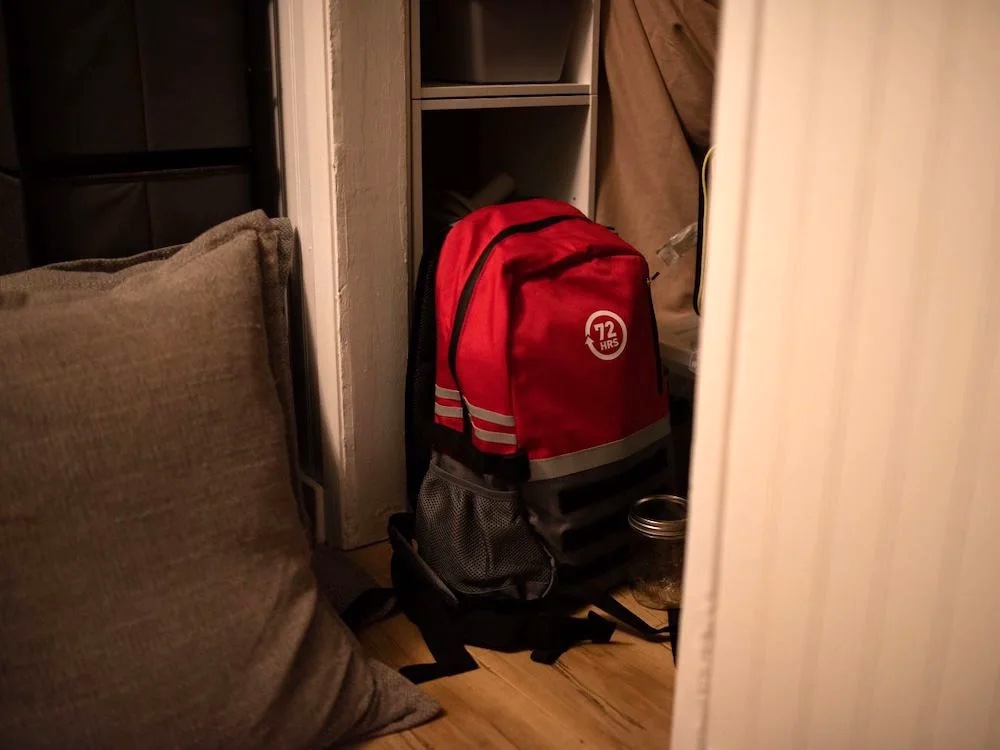
Residents are encouraged to register in advance with B.C.’s Emergency Support Services, which will streamline the process when arriving at reception centres. (Those without internet can register when they arrive at the centres.) ESS provides a “safety net” including food, lodging and transportation for evacuees, the province says.
Fort Nelson residents who travelled to stay with family in Alberta found themselves without provincial support, Davies said. That’s a problem he said he’s currently trying to resolve.
3. When transportation options are limited
For those without a vehicle, Fort Nelson arranged buses to transport people from the community.
Find more information about transportation assistance via your local municipality or First Nations government — but keep in mind that emergency response is managed locally, so it will vary between regions. Check lists of municipalities and First Nations to find contact info for your area.
4. Where to stay
If you’re lucky, you have friends or family waiting to host you in a neighbouring community. But thousands who fled Fort Nelson earlier this month found themselves put up in hotels throughout the northern Interior.
The province’s Emergency Support Services program provides short-term financial support for things like lodging, food and transportation. That said, your insurance might provide better coverage, so it’s worth checking.
While everyone leaving Fort Nelson was able to find accommodation, many posted about the challenges of hotel living on social media, including costly daily pet fees and having to relocate from hotels that had been previously booked. But everyone was able to find accommodation, Ma said.
Anyone with accommodation to offer can reach out to local reception centres, she added.
Some locals also arrived at reception centres bringing food, water, flowers and offers of pet care, Davies said. Even a flock of ducks found refuge with local residents.
5. Expect to be welcomed by community
Communities opened their arms to Fort Nelson-area residents arriving at temporary accommodation to the south.
Social media platforms were full of offers for movie nights, pizza discounts and free coffee, yoga classes and hairstyling. The City of Fort St. John also offered things like free swimming, fitness classes, kids’ programs and museum visits for evacuees.
“The neighbours taking care of neighbours rang true this time,” Davies said. “If there is any silver lining in this, it’s that community spirit, that coming together.”
Finally, remember to go easy on yourself: leaving everything behind in the midst of so much uncertainty isn’t easy for anyone. Mental health supports are available to help with anxiety, depression, emotional support and resources specific to mental health and substance use disorders, Ma said. Call 310-6789 at any time of day.
“You are not alone,” Ma said. “We are in this together and we will continue to get through together.” ![]()
Read more: Environment




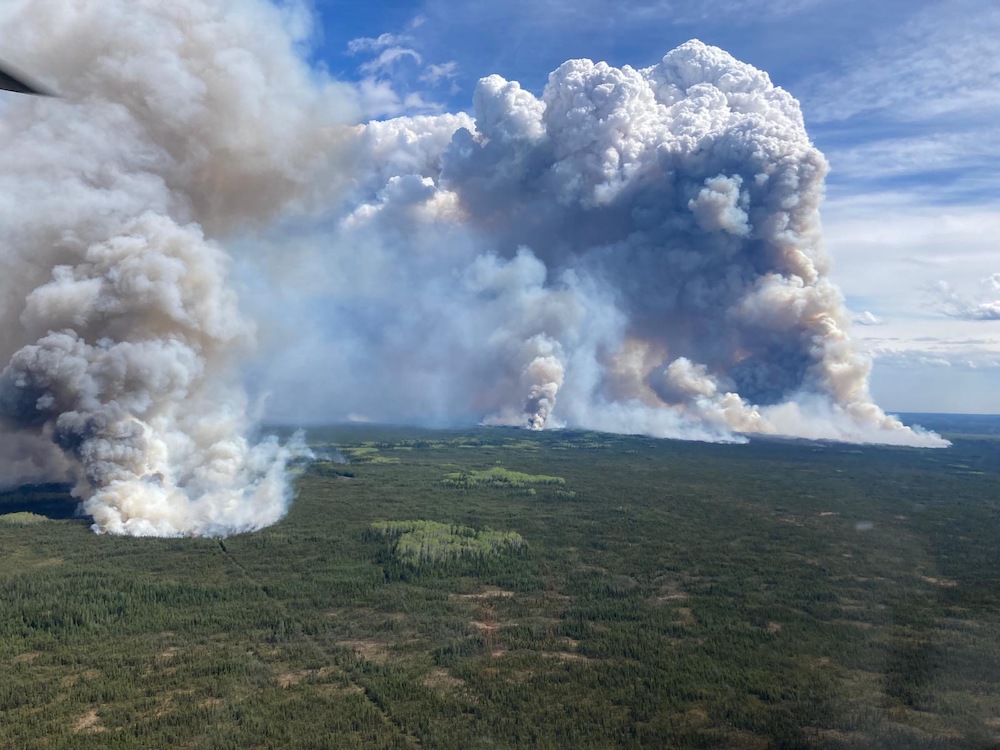

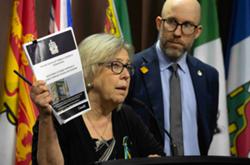

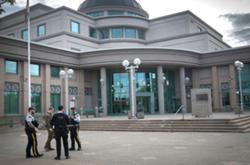




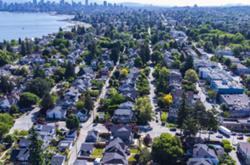



Tyee Commenting Guidelines
Comments that violate guidelines risk being deleted, and violations may result in a temporary or permanent user ban. Maintain the spirit of good conversation to stay in the discussion and be patient with moderators. Comments are reviewed regularly but not in real time.
Do:
Do not: